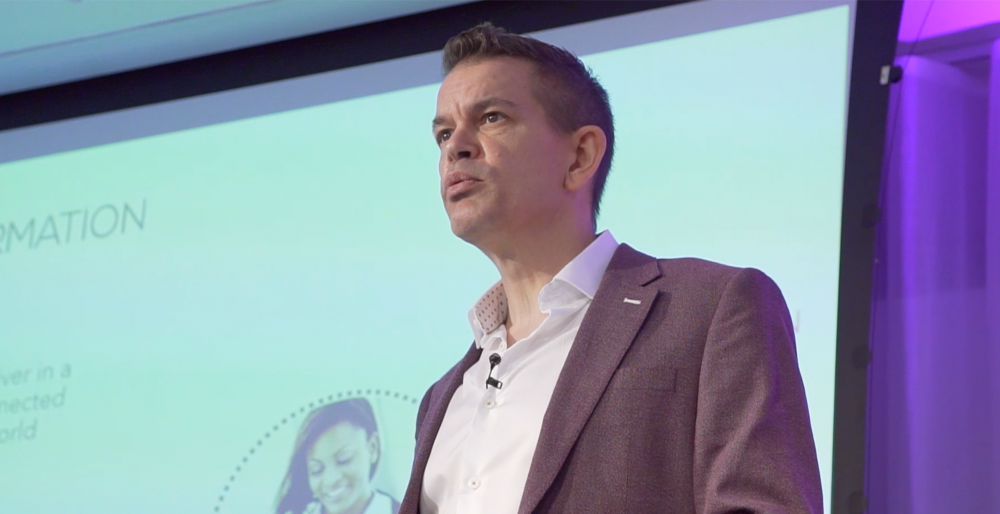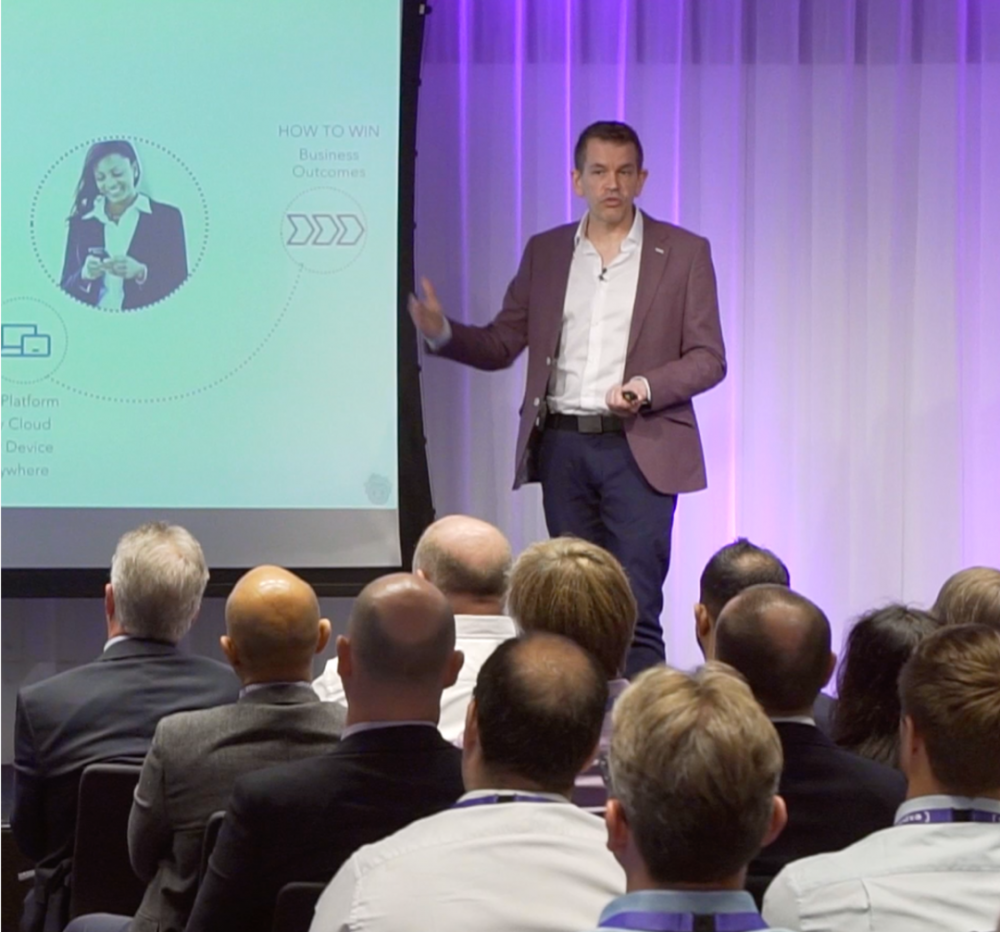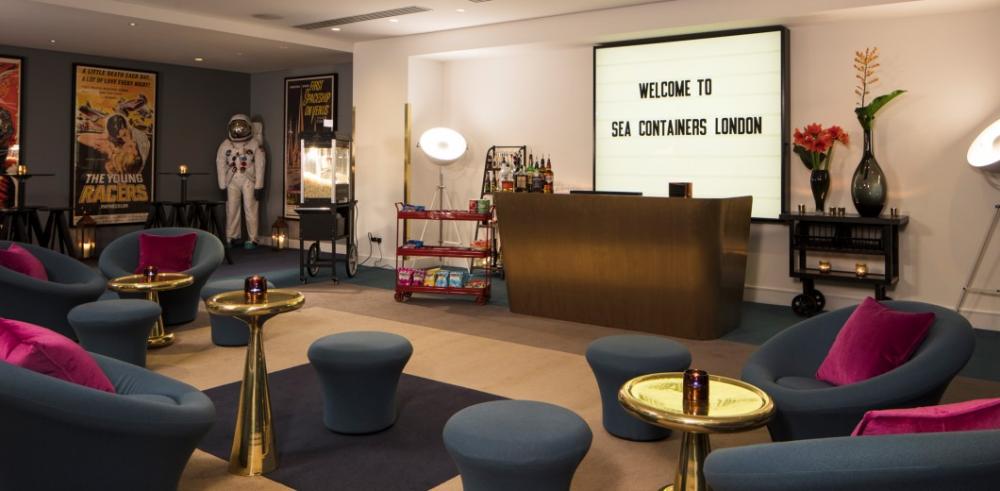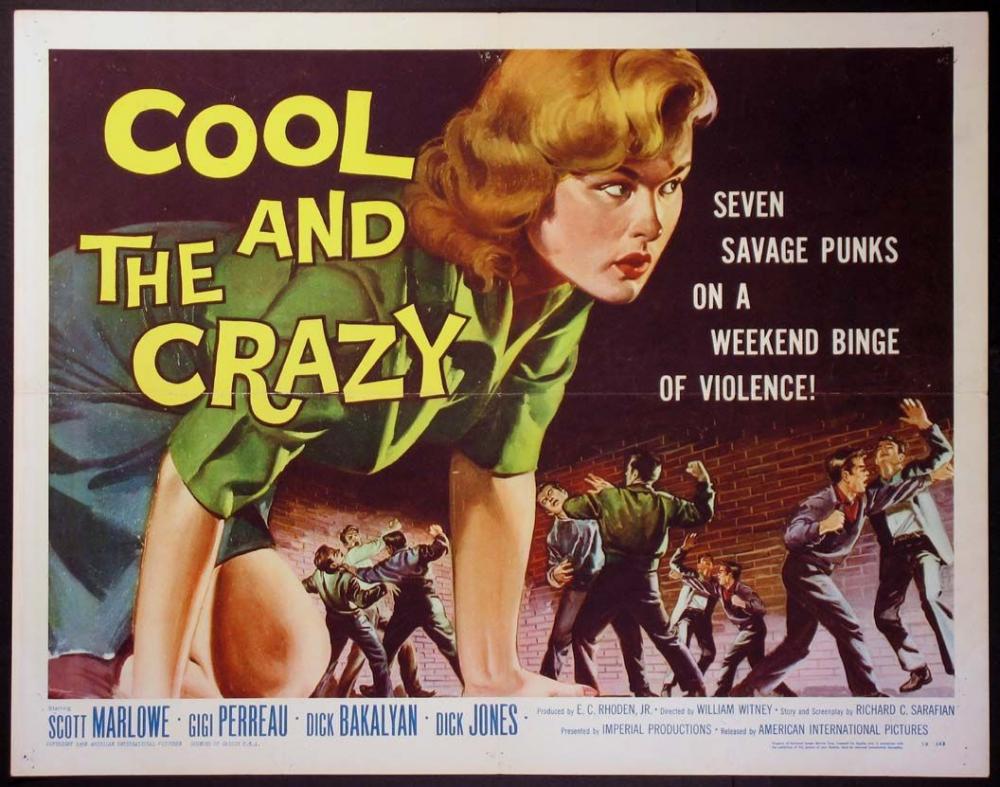Brexit ‘Far More Challenging’ Than Y2K, Top 50 Disruptive Techie Says
Brexit, schmexit. Don’t you just love it. Well no actually, most people in Britain are pretty fed up with having had to endure three years of failed negotiations and politicians of all hues on both sides of the Houses of Parliament and the Lords constantly disagreeing with one another almost ad infinitum.
And, now we have the swiftly formed Brexit Party up stirring up further disruption at home and at the European Union (EU) Parliament in Strasbourg by turning their backs on MEPs. Add to the mix the two last contenders in the Tory leadership election race - Boris Johnson and Jeremy Hunt - trading insults over Brexit, a ‘No deal’ scenario and potentially withholding payments to the EU in a divorce deal.
While Donald Tusk, the President of the European Council since 2014, remarked that a “Special place has been reserved in hell for Brexiteers”, another voice from across The Pond put matters slightly different in more recent days to me.
Dan Ciuriak, a Canadian economist from Ottawa who produced a Brexit impact assessment for the EU think-tank Open Europe (openeurope.org.uk) well before the referendum on EU membership, with poignant satire put it to me: “There is no exit from Brexit. This is a ‘Dark Mirror’ episode in which everyone gets locked into perpetual hell... and episode two is coming next.”
A co-winner of the first prize in the McKinsey Global Institute MGI "Opportunity for Europe" Prize Essay competition on how to unlock growth in Europe, Ciuriak heads up a consulting firm (ciuriakconsulting.com/) in the Canadian capital that conducts economic and policy research and analysis. His firm's analysis of the GDP impact of Brexit on the UK and across industrial sectors remains to date one of the best analyses I yet have seen.
One might also reflect on King Henry VIII’s split from the Church in Rome (1533) and the Reformation that changed England’s official religion from Catholicism to the then new Protestant faith, comparing that event to what we are going through now. We know where that lead and what happened next in that scenario - the start of religious wars and eventually the English civil war.
Brexit Day
But the $64 billion question some have posed over recent months since just before the original deadline for Britain to leave the European Union (EU) - 29 March 2019 and subsequent first extension to April 12 - was would Brexit have a bigger impact than Y2k and the millennium bug. It’s certainly a big question and some might say how can you compare the two things.
The concern at the heart of matters before the Millennium was that the change over to the year 2000 would cause a logical error for computers running the ‘two-digit’ format, since the year would suddenly switch from ‘99’ to ‘00’. However, many failed also to realise that the year 2000 (Y2K) would be a leap year - meaning some Y2K bugs would actually occur before the turn of the century.
The jury is certainly out on Brexit’s impact being bigger than Y2K and of course Britain has not yet left the EU. Short of being “towed away by tug boat across the Atlantic” as City trading veteran Alasdair Haynes - to perhaps Iceland or the seaboard of the eastern United States - we are staying in Europe - geographically anyway. That much is certain.
The uncertainty though of Brexit, its impact on businesses and the processes they have in place has been assessed in a recent new study of U.K. business leaders, C-level executives and IT/software management professionals, by Eggplant (www.eggplant.io), a British-headquartered test automation and Artificial Intelligence (AI) specialist.
Formerly known as Testplant, the firm counts the likes of BT, Land Rover, NASA, P&G, Walmart and the U.S. Army amongst over 650 clients spread across the world’s leading enterprises in the automotive, financial services, healthcare and life sciences, telecom and media, retail, and defense and aerospace industries.
The study found that over three-quarters of businesses believe Brexit will impact software systems and processes, while just over half (57%) of the sample believe Brexit as being “far more difficult” to prepare for than Y2K/Millennium Bug, a problem in the coding of computerized systems that was projected to create havoc in computers and computer networks around the world at the beginning of the year 2000.
Of course the fears expressed around Y2K didn’t turn to be as profound as was predicted by the doom mongers pre the event. It had been suggested that planes would literally fall from the sky and power stations would switch themselves off.
Turning to the Brexit hysteria and media reporting around it, Bernard Jenkin, Tory MP, speaking on BBC4’s Today programme in October 2018, said: “We will look back and wonder what all the fuss was about, a bit like the Millennium bug”. This echoed comments made by fellow Tory MP and arch Brexiteer, Jacob Rees-Mogg.
Brexit Survey: A Breakdown
Delving into some of the other findings from the survey of 250 UK business leaders, 81% of businesses said they are likely to “review or update” existing business processes and software as a result of Brexit, the customer experience optimization specialist revealed. It was also discovered that around three-quarters of respondees (77%) believed it is “certain or very likely” that Brexit will impact software systems and processes.
Now when it came to hiring staff, over two-thirds of organizations expressed the view that the are likely to hire staff (69%) and adopt automation (73%) to deal with the likely new processes imposed by Brexit.
Dr John Bates, a fintech pioneer and CEO of the U.K.-headquartered Eggplant, which is majority owned by Carlyle’s European technology fund (www.carlyle.com/our-business/corporate-private-equity/europe-technology), commenting on Brexit's potential impact, asserted: “Brexit is going to be the biggest IT disruption in history. I mean, you thought Y2K was bad. But you start ripping out the interwoven threads of dozens of countries and industrial inter-connectedness...and you start to appreciate the complexity and what we are talking about.”
The rate of change in a digital reality certainly demands that businesses harness the power of AI and Automation to deliver digital products and services that delight users. And, with apps today being updated by companies - not just every month - but sometimes every six days or even six hours firms need to step up to the plate to seize opportunities, or be left behind the curve.
Brexit: Quantifying The Cost
In relation to the cost impact from Brexit, Bates, who I spoke to on the sidelines at the tech vendor’s industry event this June at Sea Containers Hotel on London’s South Bank, ventured: “I think the cost of ‘un-Brexit' - or ‘disintegration’ to use the correct term - it will impact IT systems at all levels. That said, it’s impossible to quantify accurately.”
Turning to trade matters around Brexit, Dr Bates, an alumni of Cambridge University and who holds a Ph.D., reflected at the hotel nearby Curzon Sea Containers (www.curzonseacontainers.com/), which is styled and furnished by iconic British designer Tom Dixon, that: “Tariffs on goods...that must be making company's business models really screwed what up with Brexit on the one hand and President Trump across the Pond on the other - ratcheting up import duties on goods from the EU in to the U.S (e.g. on steel, aluminium, autos).”
He added: “So, just take the CEOs of say Audi, BMW or Mercedes, they might be reacting thinking possible along the lines of ‘Oh my god, Trump has hiked tariffs (c.25%) on German autos imported into the U.S. Meanwhile, one of our biggest markets - the U.K. - we might not have free trade with them.’”
And, that is because according to Bates, who recently also became a non-executive director of Sage Plc this May after returning from Eggplant’s Boulder, Colorado testing and research facility, “our political leaders in Europe are playing hardball”. Moreover, he posited that: “It certainly makes one wonder if the European leaders are representative of their constituents .” A visionary technologist, who co-founded Apama, now part of Software AG, Bates served as CTO and president of the streaming analytics business, and previously served as executive vice president of corporate strategy and CTO at NASDAQ-listed Progress Software.
Aside from all this, there are said to be rumours swirling that the U.S. Federal Reserve fears Brexit could destabilize the world economy. Perhaps why they are holding off further interest rate hikes until later this year.
Already, if we ignore Brexit for a moment, fears of a looming recession in the U.S. were given a major boost by a sizeable fall just recently in yield on 10-year U.S. Treasury bonds, which has led to the yield curve inverting for the first time since 2007.
“Yield curve inversion has historically been a much more reliable predictor of U.S. recessions than economists, so this development can far from be dismissed out of hand,” noted Rupert Thompson, Head of Research at Kingswood in that regard.
We’ve had a good 10 years of a bull market since 2009 and post the last crash, and despite weakness in the European economies, a slowdown in China and a change in leadership in the U.S. we seem to get through. Brexit though could be the “big destabilizer” according to the view of Dr Bates.
Turning to another view, Gary Wright, CEO and founder of City think tank and benchmarking firm B.I.S.S. Research (www.bissresearch.com) in London, takes a different view on matters and “totally disagrees with the cost and size fears” around the IT of Brexit that have been bandied around in certain quarters.
“Brexit, whether it happens or not, will not have a significant impact on IT,” contended Wright, a former head of settlements at JPMorgan Fleming for the U.K. and Ireland.
He added: “Mostly Brexit in business relates to tariffs or the lack of them depending on international deals with the EU. This will only be made certain once the trade negotiations begin in earnest. However, that assumes Brexit actually happens. And, the mess created in the U.K. Parliament and the EU stance and timescales must have cast some doubt concerning Brexit.”
Wright ventured further: “Most systems used by large corporates trading cross border will have already been adapted to a ‘No Deal’ or a deal scenario. Large successful organizations do not leave things to the last minute. Even most medium-size and smaller firms will have taken action.”
For smaller firms, they are still waiting are “unlikely to have invested in much technology” according to Wright.
“So I doubt that there will be much of a problem for them either,” he said. “The most significant problems with Brexit today are around the uncertainty concerning what will happen and should trade deals in process be impacted or for inventory allowances. No technology impact there either.”
But if you were still wondering about Y2K and the Millennium bug, it has yet to be stamped out entirely. Indeed, it has been reported that there will be a chance to see a genuine year-2000 bug in 2050. This is because not every line of old code could be completely sorted out and fixed in the run-up to the millennium. So, instead of expand the date field, some were simply tweaked with a 50/50 date split.
Effectively this meant anything less than '50' would be deemed to have the prefix ‘20’ and would represent the 21st century, while anything 50 and above would have the prefix ‘19’, representing the 20th century.
To understand more about software testing in today’s environment, Eggplant have produced a series of videos (see: https://www.youtube.com/watch?v=Jm0N6gqu1zc).















